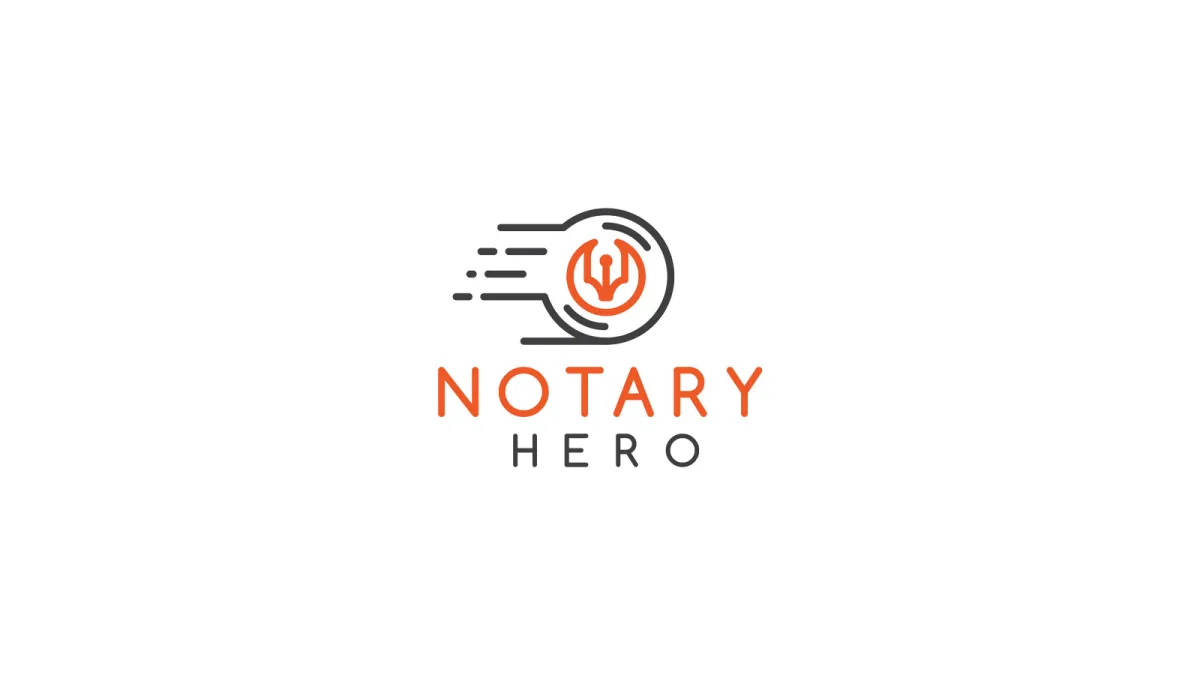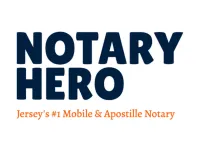Phone: (732) 863-2894

Verified Documents: Authentication vs. Apostilles
Verified Documents: Document Authentication vs. Apostilles
In today's interconnected world, the verification of documents holds immense significance for individuals and businesses engaging in international transactions. Documnet authentication from Notary Hero plays a pivotal role in ensuring the legitimacy and acceptance of crucial documents. By understanding the nuances of document authentication and distinguishing it from apostilles, one can confidently navigate the global landscape of document verification. In this comprehensive guide, we delve into the realm of document authentication, explore its importance in international transactions, unravel the methods and techniques involved, and shed light on the role of authentication services and notary publics, ensuring a seamless and reliable authentication process.
Unmasking the Distinctive Authentication Requirements
Notary Hero & Apostille Services of Somerset, NJ knows that document authentication and apostilles differ in their specific verification requirements. Document authentication typically involves multiple steps, including verifying document content, certification by the issuing authority, and often additional certifications from higher authorities, such as the Secretary of State. Conversely, apostilles follow a standardized process defined by the Hague Convention, wherein a single apostille certificate is affixed to the document to certify its authenticity. Recognizing these distinctive authentication requirements is crucial in determining the appropriate method for verifying document authenticity in international transactions.
The Crucial Role of Document Authentication in International Transactions
In global business, trust becomes the cornerstone of successful deals. Document authentication is paramount in ensuring the authenticity and integrity of crucial documents. By verifying that documents are genuine, legally recognized, and free from tampering, document authentication acts as a shield against fraudulent activities. It provides peace of mind to customers involved in international transactions, enabling them to proceed confidently and mitigate the risks associated with counterfeit documents.
Building Bridges of Trust and Credibility Across Borders with Authenticated Documents
When conducting business across borders, the recognition and acceptance of documents become paramount. Authenticated documents bridge the gap between different legal systems, cultures, and languages, establishing a common ground for trust and credibility. By undergoing the authenticatoin process with Notary Hero, documents issued by public authorities, such as marriage certificates, death certificates, and other public documents, gain international recognition and acceptance. This recognition facilitates seamless transactions and safeguards the rights and interests of individuals and businesses involved.
Unearthing the Hidden Dangers of Fraud and Counterfeit Documents in International Transactions
The risks associated with fraudulent and counterfeit documents in international transactions are real and can have severe consequences. From forged signatures and fabricated credentials to manipulated content and tampered seals, the world of fake documents is becoming increasingly sophisticated. Individuals and businesses can protect themselves from these dangers by employing document authentication measures. The authentication process with Notary Hero exposes these fraudulent activities, safeguarding the integrity of transactions and preserving the trust between customers.
Smooth Sailing Towards Successful Deals: How Authenticated Documents Facilitate Seamless Transactions
When it comes to international transactions Notary Hero & Apostille Services of Somerset NJ, efficiency, and accuracy are paramount. Authenticated documents ensure smooth sailing by eliminating unnecessary delays, rejections, or disputes. By providing legally recognized evidence of document authenticity and integrity, certified copies gain immediate acceptance, reducing the need for additional scrutiny or verification. This streamlined process expedites the transaction timeline, enabling customers to seize business opportunities, expand their global reach, and confide customers to achieve their goals.
Unveiling the Methods and Techniques of Document Authentication
Notary Hero's document authenticationhas been an integral part of legal systems for centuries. Traditional document authentication methods rely on physical examination and analysis of document content and verifying the issuing authority's authenticity. Physical visits to government offices, secretary of state facilities, or county officials may be necessary to complete the process, ensuring the highest level of security and reliability. These traditional methods uphold documents' sanctity and authenticity, instilling confidence in the verification process.
Embracing Digital Transformation: The Evolution of Remote Document Authentication Services
In the digital era, document authentication with Notary Hero & Apostille Services from Somerset NJ, has witnessed a significant transformation. Technological advancements have given rise to remote authentication services, reducing the need for physical visits and paperwork. Authentication services now leverage secure digital platforms to facilitate the verification and certification of documents. Through encrypted transmissions, electronic certificates, and secure storage, these services offer convenience, speed, and accessibility. Customers can authenticate their documents remotely, eliminating geographical barriers and enabling efficient transactions within business days.
Unlocking the Power of Professional Expertise: Authentication Services for Seamless Verification
The complexity of document authentication necessitates professional expertise. Authentication services specialize in this field, offering guidance and support to customers seeking to authenticate their crucial documents. With in-depth knowledge of authentication processes, legal frameworks, and requirements, these services streamline the authentication journey. They ensure accuracy, compliance, and efficiency by meticulously reviewing document content, verifying issuing authorities, and applying necessary certifications. Authentication services are valuable allies, empowering customers to navigate the authentication landscape easily.
Notary Public: Enhancing Document Authentication Through Official Certification
A crucial player in the realm of document authentication is the notary public. Notaries public are licensed professionals authorized to perform various authentication functions, including certifying document copies, verifying signatures, and administering oaths. Their official seal and signature lend credibility and authenticity to the documents they authenticate. Notary public services, such as Notary Hero, provide a convenient and reliable option for customers seeking document authentication. By leveraging the expertise of notary publics, individuals can ensure the authenticity and integrity of their essential documents.
Conclusion
In today's interconnected world, document authentication is a pillar of trust, credibility, and successful international transactions. Understanding the differences between document authentication and apostilles and the role of authentication services and notary publics is essential for navigating the complexities of document verification. By embracing the power of authenticated documents, individuals and businesses can unlock global opportunities, establish trust, and ensure the integrity of their important transactions. So, whether you submit vital records, business documents, or personal certificates, remember the importance of document authentication in safeguarding your interests and building a foundation of trust globally.
FAQ
Q: What is the difference between document authentication and apostille?
A: Document authentication involves multiple steps, including verifying document content, certification by the issuing authority, and often additional certifications from higher authorities. Apostilles, on the other hand, follow a standardized process defined by the Hague Convention, where a single apostille certificate is affixed to the document to certify its authenticity.
Q: Why is document authentication necessary in international transactions?
A: Document authentication is essential in international transactions as it ensures crucial documents' authenticity, integrity, and legitimacy. By verifying that documents are genuine, legally recognized, and free from tampering, authentication protects against fraudulent activities, providing peace of mind and mitigating the risks associated with counterfeit documents.
Q: How do authenticated documents facilitate seamless transactions?
A: Authenticated documents facilitate seamless transactions by providing legally recognized evidence of document authenticity and integrity. Certified copies gain immediate acceptance, reducing the need for additional scrutiny or verification, which expedites the transaction timeline. This efficiency eliminates unnecessary delays, rejections, or disputes, enabling customers to seize business opportunities and expand their global reach.
Q: What are the risks associated with fraudulent documents in international transactions?
A: The risks associated with fraudulent documents in international transactions include forged signatures, fabricated credentials, manipulated content, and tampered seals. These fake documents pose a significant threat and can lead to severe consequences. Employing document authentication measures helps expose these fraudulent activities, safeguarding the integrity of transactions and preserving trust between customers.
Q: What are the traditional and digital methods of document authentication?
A: Traditional document authentication methods involve physically examining and analyzing document content and verifying the issuing authority's authenticity. This may require visits to government offices, secretary of state facilities, or county officials. Digital transformation has led to remote document authentication services, where secure digital platforms are used for verification and certification. These services offer convenience, speed, and accessibility, eliminating the need for physical visits and paperwork.

Schedule an appointment

